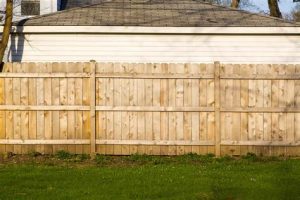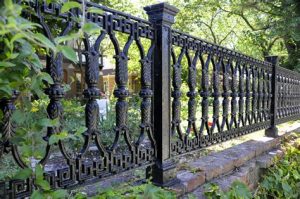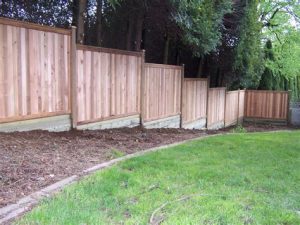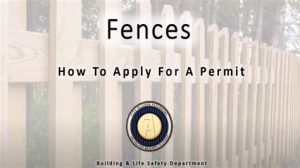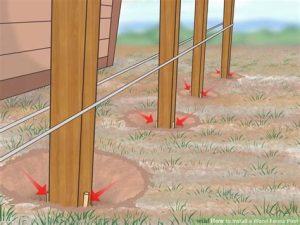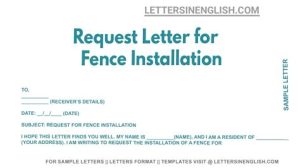When it comes to enhancing your property’s security and aesthetics, a chain link fence is often a practical choice. However, selecting the right chain link fence involves more than just picking a color or height; it requires careful consideration of various factors that can significantly impact both cost and quality. Whether you’re thinking of installation for residential, commercial, or industrial purposes, understanding what to look for can save you time, money, and future headaches. In this article, we will guide you through essential aspects to consider before making your purchase, highlight the key factors influencing costs, help you evaluate quality and durability, and provide tips for finding the best contractors. By arming yourself with the right information, you can make an informed decision that meets your fencing needs and budget.
What Should You Consider Before Buying a Chain Link Fence?
When thinking about purchasing a chain link fence, there are several important factors to consider to ensure that your investment meets your needs and expectations. Here are some essential points to keep in mind:
- Purpose: Determine why you need a chain link fence. Is it for security, to keep pets in, or to define property boundaries? Your reason will influence the height and type of fence you select.
- Height: The standard heights for chain link fences range from 3 to 12 feet. Consider your specific needs when deciding on the height, as taller fences offer more security but may also be more expensive.
- Material: Chain link fences come in various materials and gauges. Choose a high-quality material that fits your budget while meeting your requirements for durability and strength.
- Coating: Look for fences that are galvanized or have a vinyl coating. These features enhance rust resistance, prolonging the fence’s lifespan and maintaining its appearance.
- Local Regulations: Check local zoning laws and regulations regarding fencing. Some areas have restrictions on height, style, and even color. Adhering to these rules can save you from fines or needing to modify the fence after installation.
- Maintenance: While chain link fences require less maintenance than wood or vinyl options, it’s still crucial to consider how easy it will be to maintain your fence over the years. Think about potential coatings and corrosion management.
- Cost: Prepare a budget that includes not only the cost of materials but also installation and any ongoing maintenance expenses. Weigh your options carefully to find a solution that offers value for your money.
- Installation: Consider whether you will hire a professional for installation or tackle it yourself. Hiring a contractor can ensure proper setup and save you time, although it may contribute to overall costs.
By carefully considering these factors, you can make an informed decision about your chain link fence purchase, ensuring it meets your specific needs and budget.
Key Factors That Impact the Cost of Chain Link Fencing
When considering the cost of installing a chain link fence, there are several what should be taken into account. Understanding these factors can help you make an informed decision and manage your budget effectively. Here are the key elements that impact the overall cost:
| Factor | Description |
|---|---|
| Material Type | The type of chain link (galvanized, vinyl-coated, etc.) significantly affects the price. Galvanized steel is often cheaper, while vinyl-coated options come at a premium. |
| Fence Height | Taller fences require more materials and labor, increasing costs. Standard heights are typically 4, 5, or 6 feet. |
| Length of Fence | The total linear footage of the fence impacts material and labor costs directly. Longer fences mean higher expenses. |
| Property Terrain | Uneven or rocky land may complicate installation, leading to additional labor costs. |
| Gates and Accessories | The inclusion of gates, privacy slats, or other accessories can quickly add to the total cost of the fencing project. |
| Labor Costs | Prices can vary based on your location and the experience of the contractor. Always compare quotes from multiple contractors. |
By taking these factors into consideration, you can better understand what should influence your budget for a chain link fence installation. Make sure to assess each aspect carefully before making your final decision.
How to Evaluate Chain Link Fence Quality and Durability
When selecting a chain link fence, understanding how to evaluate its quality and durability is crucial. A well-constructed fence can provide security and longevity, making it essential to know what to look for.
Here are several key aspects to consider when assessing the quality of a chain link fence:
- Material Thickness: Check the gauge of the steel wire used in the fence. A lower gauge number indicates thicker wire, which enhances strength and durability. Standard gauges for residential fences typically range from 11 to 9.
- Coating: Look for chain link fences that have a protective coating, such as galvanized steel or vinyl. Galvanization helps prevent rust and corrosion, ensuring longer-lasting performance, while vinyl can offer additional aesthetic appeal.
- Mesh Size: The size of the mesh openings can influence both security and visibility. Smaller mesh sizes can deter intruders but may reduce visibility. Assess your needs to find the right balance between security and visibility.
- Framework Strength: The quality of the posts, rails, and fittings also plays a significant role in the overall strength of the fence. Opt for posts that are at least 2-3 inches in diameter and ensure they are made from sturdy materials.
- Manufacturer’s Warranty: A reputable manufacturer will often provide a warranty for their products. This warranty can give you an idea of the confidence the manufacturer has in their product’s durability over time.
By focusing on these criteria, you can make an informed decision when evaluating the what should be included in a quality chain link fence, ensuring it meets your long-term needs for durability and performance.
What Should Be Included in Your Chain Link Fence Installation Quote?
When reviewing a quote for your chain link fence installation, it’s crucial to ensure that it encompasses all necessary components and services to avoid unexpected costs and guarantee quality. Here are the essential elements that what should be included in your quote:
| Item | Description |
|---|---|
| Material Costs | Detailed breakdown of fencing materials, including the type of chain link, gauge, and any additional features like privacy slats or coatings. |
| Labor Costs | Estimated hours required for installation and the hourly rate of the contractors. |
| Permits and Fees | Any local permits or fees required for the installation process. |
| Preparation Work | Details about the preparation that will be done, such as clearing the area or any grading work needed before installation. |
| Installation Process | An overview of the installation method, including any specific techniques that will be employed. |
| Warranty Information | Details about any warranties on materials and labor that the contractor offers. |
| Timeline | Estimated start and completion dates for the project. |
| Payment Terms | Clear outline of payment schedule and accepted payment methods. |
By ensuring all these aspects are covered in your quote, you will not only have a clear understanding of the financial commitment but also help in determining whether the contractor is transparent and trustworthy. This information is vital to making an informed decision on your chain link fence installation, aligning with your budget and expectations. Always ask for clarification on any points that are not clear and make sure everything discussed verbally is documented in the quote.
Tips for Finding the Best Chain Link Fence Contractor
Choosing the right contractor for your chain link fence installation can significantly affect the quality of the final product and your overall satisfaction. Here are some essential tips to help you find the best chain link fence contractor for your needs:
- Research Local Contractors: Start by researching local contractors who specialize in chain link fence installation. Check their websites, customer reviews, and testimonials to gauge their reputation and quality of work.
- Check for Licensing and Insurance: Ensure that the contractor is licensed and carries liability insurance. This protects you from any potential legal issues that may arise during the installation process.
- Ask for Recommendations: Seek recommendations from friends, family, or neighbors who have recently had chain link fences installed. Personal experiences can provide valuable insight into the contractor’s reliability and workmanship.
- Request Quotes: Obtain quotes from multiple contractors. Compare the pricing, but also consider what is included in each quote, such as materials and labor.
- Inquire About Experience: Ask the contractor about their experience specifically with chain link fences. Inquire about the number of installations they have completed and see if they can provide examples of their work.
- Discuss Warranty and Maintenance: Understand what warranties are provided for both the materials and the workmanship. A reputable contractor should offer warranties that protect you after the installation is complete.
- Communication Style: Evaluate how the contractor communicates with you. A good contractor should be responsive, transparent, and willing to address any concerns or questions you may have.
- Review Contracts Carefully: Before signing any contract, read it thoroughly. Ensure that all aspects of the project, including timelines, costs, and specifications, are clearly outlined.
- Check References: Don’t hesitate to ask for references from past clients. Speaking directly to previous customers can give you a clearer picture of what to expect.
- Trust Your Instincts: Finally, go with your gut feeling. If you feel uncomfortable or uneasy with a contractor, it’s best to keep looking until you find one that meets your needs.
Finding the best chain link fence contractor is crucial to achieving the desired outcome for your project. By considering these tips, you’ll be well-equipped to make an informed decision.
Frequently Asked Questions
What materials are commonly used for chain link fences?
Common materials for chain link fences include galvanized steel, vinyl-coated wire, and aluminum, each offering different levels of durability and aesthetics.
How do I determine the right height for my chain link fence?
The right height for a chain link fence depends on its intended purpose, local regulations, and personal preferences; typical heights range from 3 feet for decorative purposes to 6 feet for security.
What is the average cost per foot for chain link fencing installation?
The average cost per foot for installing chain link fencing can range from $10 to $20, depending on factors like height, coating type, and regional labor costs.
Why is it important to select a reputable contractor for fence installation?
Choosing a reputable contractor ensures quality workmanship, adherence to local building codes, and potentially better warranty options, reducing the likelihood of costly future repairs.
Can I install a chain link fence myself, and what tools will I need?
Yes, you can install a chain link fence yourself. Basic tools you’ll need include a post-hole digger, level, measuring tape, and possibly a concrete mixer for setting the posts.
What are some common mistakes to avoid when installing a chain link fence?
Common mistakes include improper post placement, failing to account for ground slope, and not checking local zoning laws and regulations before installation.
How can I maintain my chain link fence to extend its lifespan?
Maintaining a chain link fence involves regular inspections for rust or damage, applying protective coatings, and ensuring the ground remains clear of debris that could affect the fence’s structural integrity.
